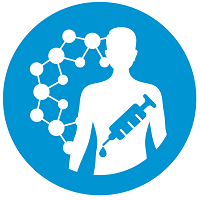Preclinical, Clinical, and Translational Sciences
Rapid Fires: Designing and Delivering Effective Clinical Trials for Specific Populations 2
Iberdomide Biopharmaceutical Risk Assessment Using Model Informed Drug Development Approach
Tuesday, November 11, 2025
3:15 PM - 3:30 PM CT
Location: 225 CD

Ajay Saxena, PhD
Scientific Director
Bristol Myers Squibb
North Brunswick, New Jersey
Rapid Fire Speaker(s)
Iberdomide is a BCS III drug where systemic exposure is limited by dissolution rate and permeability of the molecule, but not solubility. During development, multiple stage-appropriate formulations were developed for clinical evaluation, ranging from active in capsule (AIC) for Phase 1 to formulated capsule as intended commercial formulation (ICF). Formulations were bridged through relative bioavailability studies. A food-effect study with Phase 1 AIC showed no food effect. Team leveraged model informed drug development approach (biorelevant dissolution-based PBPK modeling) to predict no food-effect with ICF. Sensitivity analysis using the PBPK model demonstrated that permeability and total amount of drug released from formulation are the most sensitive parameters in defining the systemic exposure of iberdomide, in agreement with iberdomide’s BCS III classification. The approach demonstrates how clinical data (real-world data) can be combined with modeling and simulation to explore untested scenarios with reasonable confidence without carrying additional resource intensive clinical studies.
Learning Objectives:
- Upon completion, participants will learn how to leverage biorelevant dissolution, clinical data and PBPK modeling to assess the biopharmaceutical risk and reduce additional clinical assessment to save time and cost
- Upon completion, participants will learn the importance of biopharm tools and how they complement each other in assessing bioperformance related risk
- Upon completion, participants will learn how to develop a comprehensive biopharm risk assessment to have a sound scientific rationale while minimising clinical evluations


